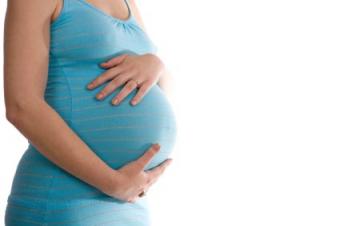
A 2010 Harvard School of Public Health study questioned a possible connection between fertility drugs and autism. The cause of autism is unknown and numerous studies have examined possible causes ranging from genetics and environmental toxins to vaccines. Another 2010 Israeli IVF study also noted a connection between fertility treatments and autism. Could infertility treatments trigger autism in some children?
2010 Harvard Fertility Drug Study Overview
A Harvard School of Public Health study found that children whose mothers took ovulation-inducing fertility drugs to assist pregnancy outcome were nearly twice as likely to develop autism than children whose mothers did not receive infertility treatments. The Harvard School of Public Health presented the results of the study about fertility drugs and autism at the International Meeting for Autism Research in Philadelphia on May 19, 2010.
Study Details
Harvard researchers conducted the research for the study via a questionnaire. Researchers asked 111 mothers with autistic children who were participating in Nurses' Health Study II about their infertility history and fertility treatments. The study found that about 34 percent of the mothers of autistic children used fertility drugs to assist pregnancy compared to about 24 percent of 3,900 mothers with nonautistic children. Forty-Seven percent of the mothers of children with autism had a history of infertility, while only 33 percent of the mothers of nonautistic children reported fertility problems. The researchers also found that long-term use of fertility drugs increased a mother's chances of giving birth to a child with autism.
Significance of the Study
Autism experts point out that it is too early to comment on the overall significance of the study since the research details are not yet published. They also question the effectiveness of results from a questionnaire.
Israeli Study Links IVF to Autism
Israeli researchers from the Autism Center at the Assaf Harofeh Medical Center in Israel presented a study at the same Philadelphia International Meeting for Autism Research that linked in vitro fertilization (IVF), preterm birth and low birth weight with the development of autism. Dr. Ditza Zachor of Tel Aviv University's Sackler School of Medicine and director of the Assaf Harofeh Medical Center's Autism Center led the study.
Zachor reported that 10.5 percent of 461 children diagnosed with autism were conceived with IVF. This rate associated with IVF was significantly higher than the 3.5 percent autism rate among the general Israeli population. 4 percent of the autistic children were born premature and 5 percent had a low birth weight, compared to only 1 percent of general population affected by low birth weight.
Study Raises Questions
Dr. Zachor believes it is too early to draw definitive conclusions but believes the study raises critical questions about connections between IVF and autism. She urges more research into the matter.
Could Fertility Drugs and Autism Be Linked?
According to the Centers for Disease Control and Prevention (CDC), about 10 percent of American women between the ages of 15 and 44 experience infertility problems. In addition, women over 35 are more likely to have fertility problems and may require infertility treatments to conceive.
Autism experts, such as pediatric neurologist Dr. Max Wiznitzer from the University Hospitals in Cleveland, Ohio, believe there may be a connection between fertility treatments and autism but stresses that other factors may contribute to the development of autism. Wiznitzer points in a May 21 ABC news story out that environmental factors or damaged eggs may also play a role in the development of autism in cases where infertility treatments were administered.
Experts Say Any Potential Risk Is Small
Experts believe the studies are worth noting but urge parents not to worry because more research is needed for a conclusive answer. According to the Epidemiologist, Kristen Lyall, who led the Harvard study, if further research reveals an association between fertility drugs and autism, any potential risk for developing autism is small. There was a four percent risk of having a child with autism among mothers over 35 who took fertility drugs to help conceive their first child.
Conclusion
At this time there is no definitive answer as to whether or not a mother's fertility treatments increase the risk for a child to develop autism. The two 2010 studies provide clues to a possible autism cause. A woman contemplating fertility treatments should feel confident that if any potential autism risk exists, it is minimal. However, it is still a good idea to discuss all the potential risks of any fertility treatment with her doctor.







